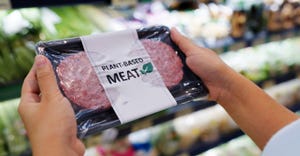Enzymes can be used at different stages of the beer brewing process to achieve diverse results, including boosting sustainability and ingredient options.

Historically, brewing has been a resource-intensive industry using large amounts of energy, water and raw materials. In recent years, consumers have pushed for greater sustainability in the brewing industry so they can continue to enjoy their favorite beers, while staying true to their personal sustainability goals.
Additionally, beer is the most consumed alcoholic beverage worldwide, and demand is not slowing down, according to Statista’s “Beer Report 2020.” Therefore, sustainability gains in brewing beer can have a far-reaching environmental impact around the world. And manufacturers are taking note, with many actively seeking solutions that will lower their carbon footprints without affecting the taste and quality of the final drink.
A local perspective
Climate considerations are central to the purchasing decisions of many consumers. In a recent survey conducted by members of Purdue University’s agricultural economics team, 75% of Americans said they would happily pay more for beer made using environmentally sustainable practices.
One way to lower the environmental impact of beer is to source locally grown crops–an approach that many consumers find appealing. According to DSM’s proprietary research, 39% of beer drinkers prefer locally sourced beverages. The same research also suggests Europe’s locally grown barley appeals to beer drinkers in Spain (86%), France (76%), Germany (78%) and the U.K. (72%). Comparably, 86% of South Africans like beer brewed with local maize; 76% in the U.S. are interested in regionally sourced sorghum beer; and in Brazil, 75% like beer with cassava origins.
This preference for locally sourced ingredients stems from consumer desire for more sustainable food and drink, as well as supporting their local economies. For brewers, a local-first approach could be key to winning over sustainability-minded customers, as well as making a significant reduction in their carbon footprint.
Unlocking adjunct brewing with enzymes
Enzymes hold the key to implementing more sustainable brewing practices using locally sourced ingredients–at scale. Biological catalysts normally used in small amounts and added in their liquid state, enzymes can be used at different stages of the brewing process to achieve diverse results.
One application for brewing enzymes is adjunct brewing–the switch from using malted to unmalted brewing grains, allowing brewers to use 100% barley instead of imported grains. Brewing with adjuncts also enables producers to make use of locally available raw materials like wheat, maize, rice, sorghum and cassava to unlock new and unique taste profiles. When barley is used, the added enzymes replace what is usually produced by malting. These enzymes are needed to complement the enzymes naturally present in barley, namely beta-amylases and exo-peptidases.
Not only does adjunct brewing allow for more sustainably sourced, 100% barley recipes, it also reduces the amount of water and energy needed by removing the need to malt the barley. Malting is an extremely water- and energy-intensive process, accounting for 10% to 15% of the carbon footprint of beer. Brewing with 100% unmalted barley can result in carbon footprint savings of over 60 kg of CO2 per ton of barley, per DSM’s analysis. Leading adjunct brewing enzymes can also help to increase brewing capacity by as much as 25%, while reducing mash cycle time by up to 20%—making them both a sustainable and economical solution.
Using enzymes to reduce water and energy usage
According to the water footprint network, one 250-ml glass of beer requires an average of 74 liters of water to produce. Reducing beer’s heavy reliance on water consumption has been an ongoing priority for brewers for some time, and enzymes could offer manufacturers an easy solution for reducing both water and energy usage.
Specifically, adding liquid fungal proline-specific endo-protease enzymes can reduce water consumption by up to 1%, DSM analysis revealed. This water reduction achieves further energy savings, resulting in cutting the carbon footprint of brewing operations by between 5% and 6%, and saving upwards of $77,000 per 1 million hectoliters of beer produced.
These same enzymes can also prevent chill haze by breaking down the specific haze-sensitive proteins in beer. This means brewers can skip the deep-cooling step in the beer stabilization and clarification process, saving energy. Additionally, these enzymes help reduce beer wastage by removing the need for powdered stabilization aids, such as PVPP (polyvinylpolypyrrolidone) or silica gel, which can cause a 0.5% beer loss when these aids are filtered out of the beer. Omitting stabilization aids also reduces the risk of oxygen introduction and supports first-time-right results.
Liquid fungal proline-specific endo-protease enzymes are easy to implement into any stabilization setup and don’t require any change to existing brewing processes or equipment. Furthermore, the addition of these enzymes does not impact the taste or texture of the beer–after performing their function, they are no longer active in the finished beverage. This is vital for the 22% of consumers who value flavor above all else.
Shaping a more sustainable future
If all beer production in the U.S. switched to adjunct brewing processes, 753 million kg of CO2 could be saved—which equates to taking 161 million cars off the road. This demonstrates just how big an impact incorporating more sustainable brewing practices can have. On top of the sustainability gains, manufacturers using these methods can communicate the impact to consumers … further winning over eco-conscious beer drinkers.
Theo Wijsman is a product application expert in beverage at DSM Food & Beverage. The company is committed to providing the brewing industry the innovative solutions it needs to meet the demands of today’s consumers. DSM’s Food System Commitments initiative aims to provide a healthier future for people, planet and livelihoods, with targets including reducing greenhouse gas emissions 50% by 2030.
About the Author(s)
You May Also Like






